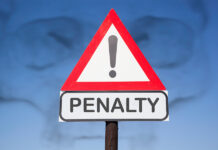The central government’s crackdown on polluters, including factory shutdowns and relocations, is necessary, but thoughtless attempts by some local governments may affect the manufacturing industry, write Paul Davies, Bridget Reineking and Andrew Westgate
China has made rapid strides in developing a robust, modern environmental regulatory system in the past decade. This progress includes a policy framework overhaul triggered by the Environmental Protection Law (EPL) in 2014, an ongoing reform of emissions and discharges permitting a new draft Soil Pollution Law to impose liability for remediation of contaminated land, and the launch of the world’s largest emissions trading system in 2017.
Policy evolution has been accompanied by both growing public awareness and a focus on environmental issues − air pollution and food safety in particular − and the central government’s increasingly vigorous enforcement of environmental laws. China’s Premier, Li Keqiang, declared war on pollution in 2014, and finally, in October 2017, environmental protection was enshrined in official Communist Party ideology as part of “Xi Jinping Thought” − which was added to the party constitution at the 19th National Congress of the Communist Party of China (CPC).
One of the most significant aspects of this stepped-up emphasis on enforcement has been factory closures, which have been employed with increasing frequency by regulators tasked with fighting Premier Li’s “war on pollution.” This article analyzes the drivers behind factory shutdowns in China and the steps companies can take to prepare for, and protect themselves against, enforcement action.
A heavy hand
The past few years have featured some of the largest environmental crackdowns in Chinese history. Planning for these crackdowns began in July 2015, when the Central Leading Group for Comprehensively Deepening Reforms issued a trial Environmental Protection Supervision and Inspection Plan. This inspection plan called for inspections across all of China’s 31 provinces, targeting both polluting factories and local officials failing to enforce environmental law.
That same year, Chen Jining, then the newly appointed Minister of Environmental Protection, vowed that environmental law would not be a “paper tiger”, but a “sharp weapon with teeth of steel”. The government then launched the first of four nationwide environmental inspections at the end of 2015, with the last phase − in which tens of thousands of factories were temporarily shut down − ending shortly before the 19th National Congress.
Some estimates suggest that about 40% of the country’s factories were forced to shut down at some point in 2017, and as many as 70,000 factories were reportedly shut down in the provinces of Hebei, Henan and Shandong alone.
These facility closures have become a major challenge for local and multinational manufacturers in China. Many small and medium-sized enterprises have been slow to adapt to the new wave of environmental regulations, and because smaller manufacturers often emit greater quantities of pollutants per unit of production, they have become a focus for regulators.
But even companies with state-of-the-art emissions control systems and robust compliance programmes have encountered difficulties due to shutdowns of their suppliers and customers, particularly those located in or around certain sensitive regions such as Beijing, and especially during the winter season, when ambient air pollution levels are typically higher.
You must be a
subscribersubscribersubscribersubscriber
to read this content, please
subscribesubscribesubscribesubscribe
today.
For group subscribers, please click here to access.
Interested in group subscription? Please contact us.
你需要登录去解锁本文内容。欢迎注册账号。如果想阅读月刊所有文章,欢迎成为我们的订阅会员成为我们的订阅会员。
Paul Davies is a partner at Latham & Watkins in London. Bridget Reineking and Andrew Westgate are associates at Latham & Watkins in Washington DC and New York, respectively.
This article was prepared in conjunction with Scott Fulton, John Pendergrass, and Zhuoshi Liu, of the Environmental Law Institute in Washington DC, and George Zhu and Lin Na of JunHe, a Chinese law firm.





















